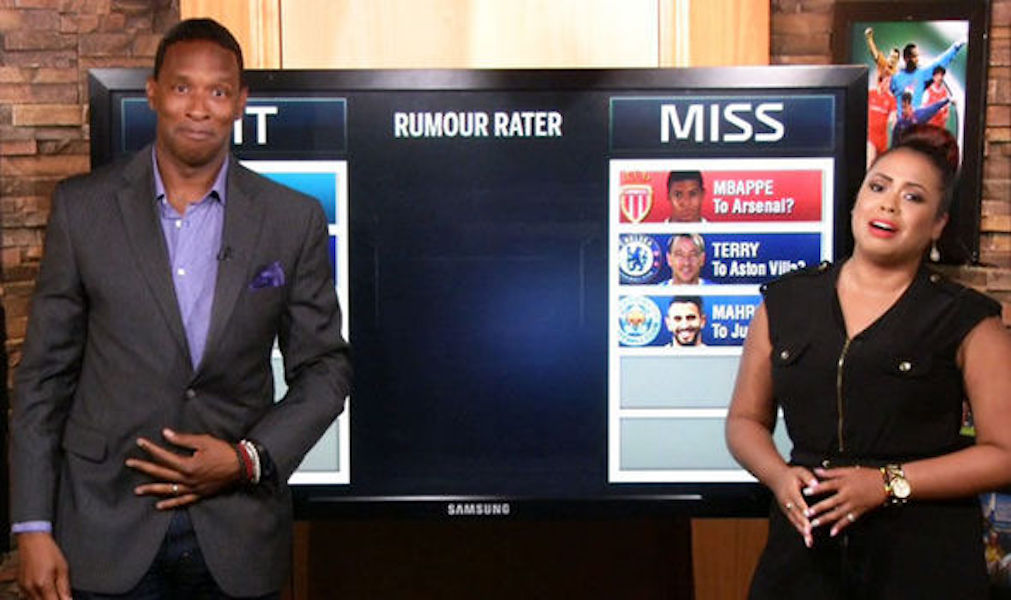The lion’s share of attention regarding CONCACAF’s immediate future, in this country at least, centers around soccer in North America. Can Mexico finally make a run to a World Cup final? What does the U.S. need to do to to get past their World Cup qualifying failure? Will the joint World Cup bid between those two countries and Canada for the 2026 tournament succeed?
But there’s an entire region, one that makes up the majority of CONCACAF’s membership, also searching for its own identity.
“I’ve been particularly disappointed with the Caribbean Football Union,” ESPN’s Shaka Hislop, a former goalkeeper for Trinidad and Tobago and several Premier League sides, said in an interview with SB Nation. “For a long time I felt the CFU shirked their responsibilities to the wider Caribbean nations in almost a power grab, in the fact that CFU had [the majority of the] 41 votes within CONCACAF, so kinda drove the political picture and did nothing to really develop the football.”
Hislop remembers the crushing blow to his native Trinidad and Tobago when it came within one game of the World Cup during the qualification cycle for the 1990 tournament. Hislop was also part of the 2006 World Cup team — though in the twilight of his career — that got over the hump and made the tournament.
But that is an exception to the rule for Caribbean nations, where expectations are different than the rest of CONCACAF. While Mexico expects to make every World Cup, and the U.S.’ absence is (and should be) treated as nothing short of a catastrophe, the 25 FIFA-affiliated nations in the CFU have combined for three berths in the World Cup all-time. Haiti, Jamaica, and Trinidad and Tobago have each made it once.
For Hislop, he sees a group of teams that have had different ideas of success.
“Success for Trinidad and Tobago, for Jamaica, is qualifying for the World Cup,” Hislop said. “I don’t see anybody else from the Caribbean qualifying. Well then, what does success mean for them? Getting to the HEX, or it could be a deep run in the Gold Cup. The bar lowers.”
For Hislop, these lowered expectations are a problem, but he also points to an unwillingness among member nations to be honest with themselves about what types of programs they can build.
“I feel that a lot of the dialogue is about how do we emulate what Spain is doing and what Germany is doing,” he said. “And I guarantee whoever wins this World Cup come July it will be ‘Well, what have they done and how can we copy them?` You can’t copy them. It’s this kind of shift in focus that I think has kept us back.”
Hislop sees a path forward as focusing on the development of a select group of players from an early age. The talent pool in the CFU is microscopic in comparison to the U.S., Mexico and bigger nations in Europe like Spain and Germany.
The entire population of Bonaire, an island nation that’s a member of the CFU, was just 18,000 people at the time of a 2015 census. Germany, on the other hand, has 6.6 million people who are members of their soccer association.
For Hislop, who played college soccer at Howard in Washington, D.C., an academy system isn’t the only answer to development. A hybrid approach that involves sending players to college in the U.S. as well is necessary.
Speaking specifically about his native Trinidad, Hislop admits he’s not particularly close with the football federation. He lives in the U.S. after settling here full time following his final season as a player with FC Dallas. He’s been critical of the Federation in the past, but knows the president David John Williams. He also acknowledges that former players bring “baggage” and won’t be the one to say that Trinidad should do more to court ex-players.
Though he does say that things could be better.
“I don’t think we’ve used our experience in 2006 to good effect and we’ve lost some momentum that that World Cup berth brought,” Hislop said. “If I’m asking: ‘Where do we build from to get back to back to where we were and then push on?’ I’m not sure where the starting point is right now, I really don’t.”
While Hislop is discouraged, he does believe in the people. He thinks that the current leadership will eventually get it right. For now he’s content to stay in the U.S. on account of his five children, the youngest of whom is 10 years old. He says it’s time for them to grow their own roots in the states, which is home for them.
But as a legend, and the first player from the 2006 team to be elected to Trinidad’s Sporting Hall of Fame, the chance to better the federation is an opportunity he’d certainly consider once his nest is empty.
“I think it’s an impossible job to do from abroad in terms of the presidency,” Hislop said. “Whether there’s another role there in the administration for me that I could fulfill from here and be in Trinidad four to six times a year, again, with the right people it’s something I’d jump at the opportunity.”
SOURCE: SBNation

